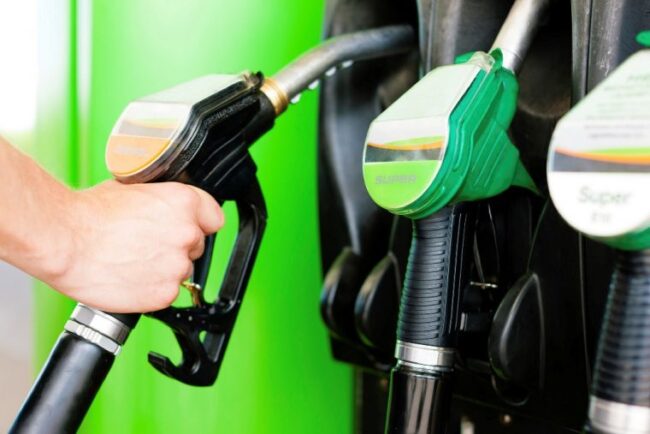If the government chooses to end the levy it will be a travesty for people who are reliant on their government for support
Over the past 12 years the price of a litre of fuel has more than doubled, from R10.43 for 93 octane petrol at the time. Now, in what must surely be one of the toughest financial environments in recent times, we face paying more than R25/l after an increase of between R2.27 and R2.36 per litre for petrol, which is on the cards from June 1.
This is unprecedented. Given that the average vehicle has a tank capacity of about 50l, to fill up will cost around R1,250. This compared to R516.50 just 12 years ago.
The fallout will be enormous as the price of every commodity that is transported road — groceries, clothes, toiletries — will quickly increase in cost. Coupled with the extent of the food shortages due in large part due to the Russia-Ukraine conflict, which is pushing up the price of the most basic of items needed to nourish a family — specifically cooking oil and bread — a huge 50-basis-point interest-rate hike earlier in May and a whopping 9.6% increase in electricity costs in April with another to follow in July, the price of living day-to-day is already well beyond the means of most South Africans. It is akin to a runaway train full of people heading towards a brick wall without any brakes.
Hard to prioritise
While we commend and welcome government’s (yet to be confirmed) extension of the almost 40% reduction in the duty imposed on each litre of fuel, which as things stand comes to an end on May 31, whether that occurs or not our people are in for a time of great turmoil — as is the economy.
Why has government delayed the decision until the eleventh hour? We must take cognisance of the other urgent priorities it has to consider, such as the infrastructure devastation caused by the recent KwaZulu-Natal floods, and the ongoing plight of state-owned enterprises like Eskom. The power utility’s lifeline ran out years ago, yet without its meagre stuttering efforts SA would grind to a halt and plunge into darkness.
These are not easy times. We have just emerged from the worst humanitarian crisis the world has seen since the second world war, and while the severity of the Covid-19 pandemic has decreased, it still persists. Most businesses are struggling back to their feet and the economy is spluttering back to life. Yet without a market for their goods and services — both consumers and business people will have to restrain spending to help make ends meet — we face a new economic challenge: our people do not have the money to keep the economy afloat.
The government has acted nobly, and now it needs to act bravely.
Inflation is the wolf at the door, a sure sign of the predicament we — and the rest of the world — find ourselves in. While the SA Reserve Bank’s monetary policy committee (MPC) had little choice but to raise the repo interest rate 50 basis points in the face of rising inflation — thanks mainly to soaring food and fuel prices — this has cut into the budgets of the very consumers who are needed to keep the economy afloat.
We salute the government for introducing the fuel levy reduction in March — it was a noble and necessary move. But much like the freeze on car and home repayments during the Covid-19 peak after people lost their incomes and jobs, they ultimately had to return to paying in full. This put many consumers right back on the path to financial trouble as many jobs have been recouped — just look at SA’s unemployment rate. And salaries are not yet back to normal after being cut significantly in many cases.
The loss of the R1.50/l fuel levy relief will have dire consequences for consumers. According to the Pietermaritzburg Economic Justice and Dignity Group’s April 2022 Household Affordability Index, the average household needs about R4,543 a month to survive.
Famine is an outcome
We realise this is a tough balancing act. It is one that has major knock-on effects though, as consumers who already battle to pay bills seek help by accessing easy credit, putting them further on the back foot. Many are also living hand to mouth, and famine is a real possibility in parts of the country if the cost of living rises any further.
As an organisation that sees what life is like at the coalface of living on credit, we are gravely concerned about the state of our nation and its ability to survive, let alone thrive. We need to start with the government’s commitment to continuing the fuel levy reduction for an indefinite time, as it will go some way towards helping commuters, both directly and by reducing the cost of moving freight from one region to another.
If government chooses to end the levy it will be a travesty for people who are reliant on their government for support. As it stands, with fuel, electricity, food and interest rates going up, consumers will either find themselves under a mountain of debt, a trend we have seen rising year on year, or they will live a life of quiet desperation as they struggle to make ends meet.
As it is, the predicted downgrade in brands, cars, houses and utilities will have a knock-on effect on our already dismal economic growth. The government has a balancing act on its hands, but we believe it needs to stand in the consumer’s corner or the chips will fall one by one and the economy will tumble.
We wait in nervous anticipation of the verdict.
• Roets is CEO of Debt Rescue.

